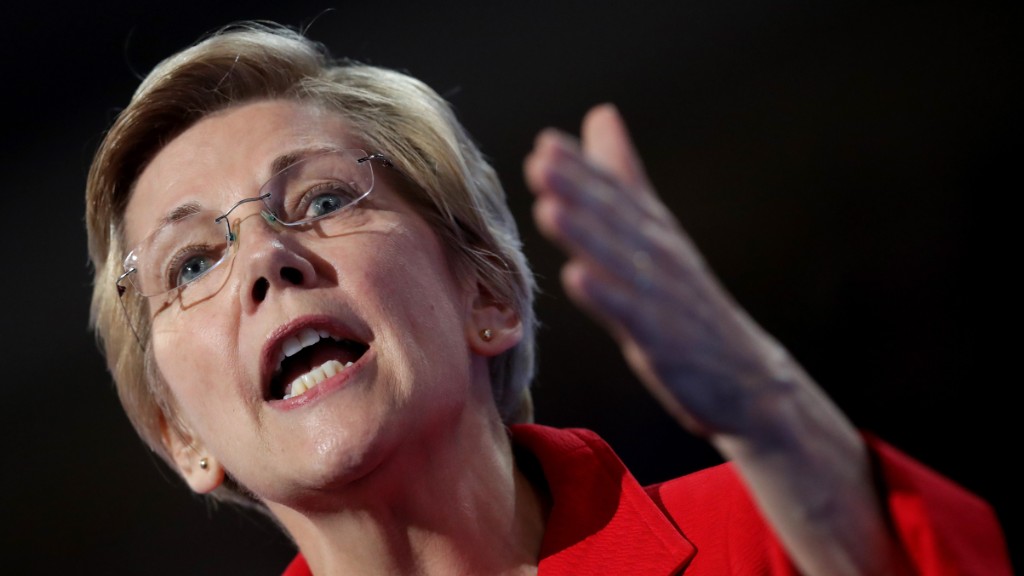
President Trump suggested during the campaign that he would break up big banks. But Treasury Secretary Stephen Mnuchin said that's not what he meant.
At issue is a Depression-era law known as Glass-Steagall. It prevented Main Street banks that take government-insured deposits from customers from participating in the riskier investment banking business associated with Wall Street. It was repealed in 1999, leading to mergers that created banking behemoths such as JPMorgan Chase (JPM), Citigroup (C) and Bank of America (BAC).
Congressional proposals, including legislation introduced by Senator Elizabeth Warren, a vocal critic of Wall Street, would reimpose those limits and require breaking up those banks. And Trump has made statements that seem to suggest he supports the idea.
"Some people ... want to go back to the old system, right? So we're going to look at that," Trump said earlier this month when asked about breaking up banks.
But in a testy exchange with Warren at a Senate hearing on Thursday, Mnuchin said that when Trump spoke of supporting a 21st Century version of Glass-Steagall, he did not support strict limits that would require breaking up the banks.
Related: Trump wants to revive 1933 banking law
"There are aspects of [Glass-Steagall] that we think may make sense," Mnuchin said. "But we never said before that we supported a full separation of banking and investment banking."
Warren called that distinction "bizarre." She said the phrase "Glass-Steagall" means breaking up the banks. In response, Mnuchin said voicing support for a 21st Century version didn't mean breaking up the banks.
Warren replied by mocking him: "We are in favor of a bill called breaking up the banks, only don't break up the banks."
Related: Mnuchin on soaring bank stocks - "You should thank me."
Mnuchin said the administration's position is "complicated," but that it definitely does not want to reimpose a wall between the two types of banking.
It "would be a huge mistake" to break banks apart because it would dampen lending to business, he said.
"If we did go back to a full separation, you would have an enormous impact on liquidity and lending to small and medium-sized businesses," Mnuchin added.


